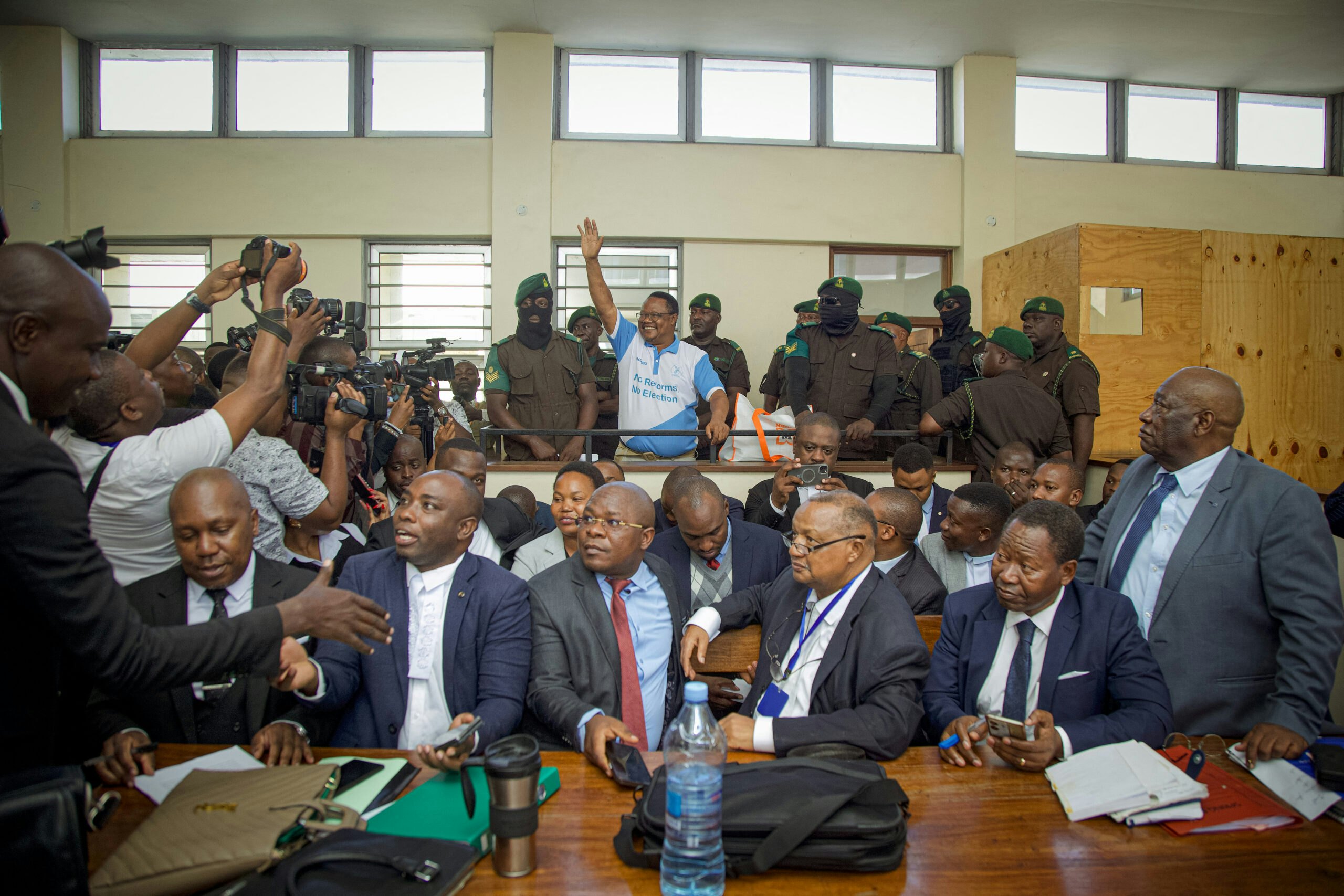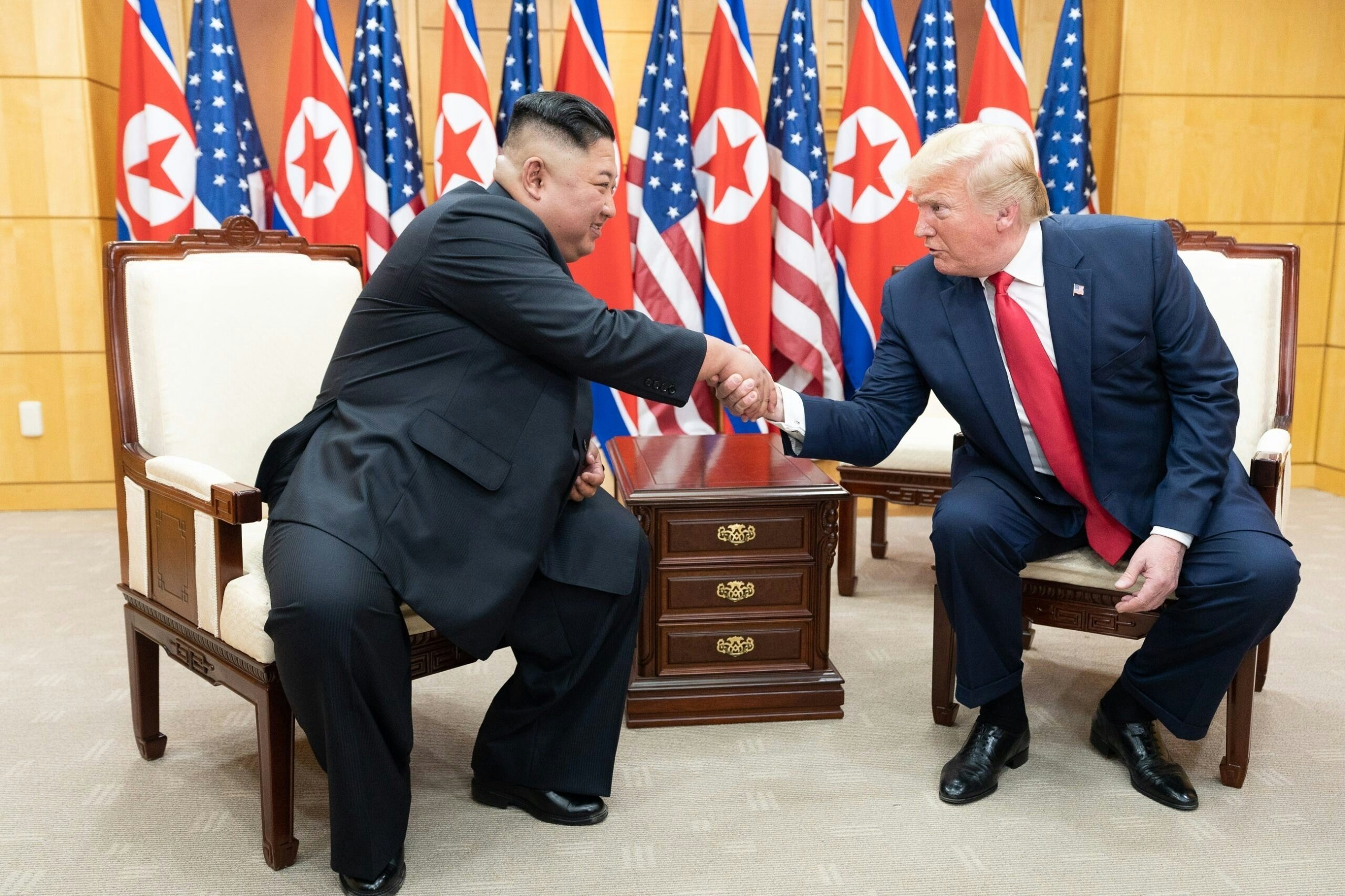Thank you for your welcome. George and I are thrilled to be back in Tanzania to host this important Summit. Welcome to the many first...
Thank you for your welcome. George and I are thrilled to be back in Tanzania to host this important Summit. Welcome to the many first ladies who have joined us. And I’m delighted to welcome our American First Lady, Michelle Obama. And England’s Cherie Blair, who has been an advocate for women around the globe.
Thanks to ExxonMobil for its generous sponsorship of this summit.
George and I through the Bush Institute are working on things most important to us. You won't be surprised to learn that we are focused on advancing freedom in all our policy areas. Freedom from ignorance – in our education program; freedom from disease in our global health program; free markets and enterprise through our economic initiative, and freedom from tyranny in our human freedom area. And across all these pillars is the Women's Initiative.
The title of this summit, Investing in Women: Strengthening Africa, reflects our belief that the inclusion of women in every part of a society and a nation makes for a more prosperous and stable world.
Countries where women are active participants in all areas, from education to politics, from economics to health, are countries that will succeed.
The path for women has not been easy, not even in my own nation. Just 95 years ago, a few brave women were organizing picket lines outside of the White House, calling on the U.S. President to support the right to vote for American women. Many of the women were arrested and some were even beaten.
Yet they continued to stand silently, day after day, holding up banners that read: “Mr. President: How Long Must Women Wait for Liberty?”
Today, we know the contributions that women can make, to their families, to their communities, and to their nations. Women now serve as heads of state – two in Africa. Three U.S. secretaries of state have been women. Women are judges, parliamentarians and legislators. They head corporations and work as global leaders.
Indeed, in country after country, women are the ones who stand at the forefront of life-changing progress.
Brave women strive every day for freedom, for justice, and for equality. In Afghanistan, women were the ones who ran the underground literacy centers, teaching girls how to read and write under threat of death from the Taliban. In Egypt, women are leading the way in efforts to build a better civil society.
In Burma, opposition leader Aung San Suu Kyi spent nearly 15 years under house arrest so that her nation might have a freer political future.
In many African nations, women are addressing complex health, economic, and social issues. These issues matter not simply for women, but for all citizens – women, men, and children.
We all have a part to play in addressing the challenges facing us today: better health for women, better education for girls and boys, and increased economic opportunity for all of our citizens.
Each First Ladies in this room has a unique platform and a podium to speak to the needs and challenges of the people in her country. As Lady Bird Johnson famously said, "A first lady is elected by only one person." Lady Bird Johnson knew that she had a podium and she chose to use it. I know that the First Ladies in this room are using their podiums. You are advocates and agents of change. And none of you needs to do it alone.
That is why we are launching a First Ladies Initiative at the Bush Institute. We want to support First Ladies around the world by convening them annually to highlight the significant role they play in addressing pressing issues in their countries. We will provide opportunities for First Ladies to foster and expand effective public-private partnerships.
With us, in this room are representatives from foundations, corporations, and non-governmental organizations. They form the backbone of public-private partnerships, the alliances that have been so successful in combatting HIV-AIDS, malaria, and now women’s cancers.
A key goal of this summit is to help foster new and expanded public-private partnerships. Over the next two days, we will have opportunities to learn what makes a successful public-private partnership and you'll have the chance to meet many of these representatives so that you might form the foundations of new ones.
We are highlighting women at this summit because at all levels and in all parts of society, women play a critical role.
Women are the ones who care for their family’s health, who see to it that their children are educated, and in many cases provide vital economic support for their family. Educated girls are less likely to marry early. They are more likely to be understand how to protect their own health and bear healthy children, and are better equipped to contribute to the economy with good jobs.
A research study shows that women who participate in the economic life of their country reinvest up to 90% of their earnings into their families and their communities. And their personal success translates into national success: countries with healthy, well-educated women are more likely to be stable and prosperous.
On one of my visits to Africa, I met a woman who had contracted HIV from her husband. When he died, her own family shunned her. They refused to allow her to sit with them or eat with them under the mistaken belief that they might 'catch' HIV from her.
Then she was introduced to a faith-based organization called Chikumbuso, where this woman how to make beautiful purses out of recycled materials. She began taking anti-retroviral drugs and she grew her purse business. Today, through her work, she supports the same family that once shunned her.
Eleven years ago, experts predicted that before 2008, eighty million people would be infected with the AIDS virus.
At a White House Rose Garden ceremony, my husband, President Bush, said, “The global devastation of HIV/AIDS staggers the imagination and shocks the conscience.” Within six months, he had unveiled the President’s Emergency Plan for AIDS Relief, the largest international health initiative ever directed at a single disease.
PEPFAR committed $15 billion dollars over five years to prevent new infections, to treat those already infected with AIDS, and to care for children orphaned by the loss of a parent to AIDS.
When he announced PEPFAR, George and I traveled to Africa where we saw first-hand AIDS’s devastating toll. In a pediatric clinic, my daughter, Barbara, and I met a mother who had brought her little girl in for treatment.
She dressed her daughter like an angel, in a lovely lavender and white dress to meet the American President. This precious little child lay on an examining table, so frail and sick. Her mother’s last hope was to make her beautiful. Today, with access to antiretrovirals, that little girl would have another chance at life.
The good news is last summer we returned to a clinic that we had visited on that very first trip. It now has so few HIV-AIDS patients they are looking for a new use for the facility.
Thanks to PEPFAR and to all of our partners, millions of lives have been saved around the world. The next step is to address women’s cancers, and we are doing that through a special public-private initiative called Pink Ribbon Red Ribbon.
Pink Ribbon Red Ribbon is adding the testing and treatment breast and cervical cancer to the PEPFAR platform, with the goal of saving lives from these two devastating diseases.
George and I launched Pink Ribbon Red Ribbon to identify and treat breast and cervical cancer in Zambia in December 2011. Less than six months later, we returned to Zambia and were thrilled to see the progress.
Pink Ribbon Red Ribbon had expanded beyond the capital city, Lusaka, and across the country. Multiple clinics are screening, diagnosing, and treating women for cervical cancer.The First Lady of Zambia, Dr. Kaseba-Sata is our partner in PRRR and she was with us yesterday at the opening of a clinic in Livingstone.
In July a year ago, we refurbished a clinic in the city of Kabwe, where we spent four days re-roofing, painting and installing new medical equipment. By the end of last year, more than 1,500 women had been screened at that clinic.
We are working to advance the good health of women. Along with good health, a theme of this summit is a good education for women and girls.
According to the Global Campaign for Education, in 47 out of 54 African countries, girls have a less than fifty percent chance of completing primary school. Many women and girls lack the skill of basic literacy. Consider what one woman once told me. “When I was sick,” she said, “I could not get to the doctor because I could not read the signs.”
Without the basic skills of literacy, something as important as following the directions on a package of life-saving medicine is difficult or impossible.
Education empowers people everywhere to transform their lives and the world around them. If women can read, they are more likely to know how diseases like HIV and malaria are transmitted. If they know this information, they can take precautions and make informed decisions that will keep their families safe. When women are educated, they learn the skills they need to contribute to their country’s economic development. A literate, educated woman can read an election ballot, she can understand her rights, and make informed decisions.
As the great Egyptian poet Hafez Ibrahim said, "When you educate a woman, you create a nation."
A third theme of this summit, along with good health and good education, is economic opportunity for women. Healthy, educated women can learn the skills they need to find jobs and support their families. In the next decade, Africa is projected to have seven of the world’s fastest growing economies.
Already in Sub-Saharan Africa, women make up at least half the agricultural workforce. If women have equal access to resources like land and fertilizer, national agricultural output could rise by as much as four percent, improving food security for many families and citizens.
When we invest in women, we are investing in the future and we are establishing a better tomorrow for the generations that come after us.At this summit, we will discuss each of these issues – health, education, and economic empowerment. But this is only the beginning.
When George and I refurbished the clinic in Kabwe, Zambia, as we were painting on that July day, a mother was giving birth to a baby daughter.
Someone told me that the new mom had named her baby, "Laura." When our painting was finished, I hurried next door to meet the mom and the baby.
And just so you know, the city of Kabwe also has a baby George. On the morning that George and I cut the ribbon for the refurbished clinic,
another mother gave birth to a baby boy and named him George.
I’m not going to try to predict the future for this Laura and this George, except to say thanks to your dedication, and hard work, I believe that all the new babies on this continent can look forward to lives full of health, hope, and opportunity.
Together, we can work to build a better tomorrow. I am excited to see what causes you will champion and what a difference you will make.
Thank you and I very much look forward to our time over the next two days.





























